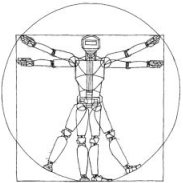Robotics: Science and Systems XVI
Fourier movement primitives: an approach for learning rhythmic robot skills from demonstrations
Thibaut Kulak, Joao Silverio, Sylvain CalinonAbstract:
Whether in factory or household scenarios, rhythmic movements play a crucial role in many daily-life tasks. In this paper we propose a Fourier movement primitive (FMP) representation to learn such type of skills from human demonstrations. Our approach takes inspiration from the probabilistic movement primitives (ProMP) framework, and is grounded in signal processing theory through the Fourier transform. It works with minimal preprocessing, as it does not require demonstration alignment nor finding the frequency of demonstrated signals. Additionally, it does not entail the careful choice/parameterization of basis functions, that typically occurs in most forms of movement primitive representations. Indeed, its basis functions are the Fourier series, which can approximate any periodic signal. This makes FMP an excellent choice for tasks that involve a superposition of different frequencies. We show that it is successful for tasks that involve a superposition of different frequencies. Finally, FMP shows interesting extrapolation capabilities as the system has the property of smoothly returning back to the demonstrations (e.g. the limit cycle) when faced with a completely new situation, being safe for real-world robotic tasks. We validate FMP in several experimental cases with real-world data from polishing and 8-letter tasks as well as on a 7-DoF, torque-controlled, Panda robot.
Bibtex:
@INPROCEEDINGS{Kulak-RSS-20,
AUTHOR = {Thibaut Kulak AND Joao Silverio AND Sylvain Calinon},
TITLE = {{Fourier movement primitives: an approach for learning rhythmic robot skills from demonstrations}},
BOOKTITLE = {Proceedings of Robotics: Science and Systems},
YEAR = {2020},
ADDRESS = {Corvalis, Oregon, USA},
MONTH = {July},
DOI = {10.15607/RSS.2020.XVI.056}
}
